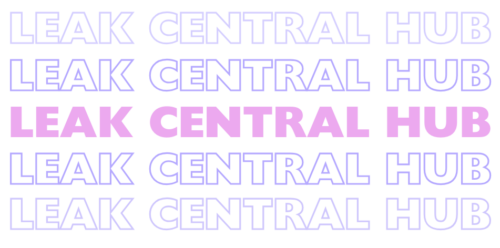The new law signed by President Volodymyr Zelenskyy in Ukraine represents a significant step in combatting online piracy. By outlawing the placement of advertising on pirate sites, the legislation aims to disrupt the revenue streams of platforms that systematically ignore takedown requests from copyright holders. This move aligns with international efforts to strengthen intellectual property rights and protect the interests of creators and content owners.
One notable aspect of the law is its targeting of sites listed on the World Intellectual Property Organization’s WIPO Alert blacklist. This indicates a coordinated approach to tackling copyright infringement at a global level. By focusing enforcement efforts on platforms identified by WIPO as habitual infringers, Ukrainian authorities can more effectively prioritize their anti-piracy measures.

The prohibition on advertising placement on pirate sites is likely to have significant repercussions for both the operators of these platforms and the advertisers themselves. For site operators, the loss of advertising revenue may undermine their financial incentives to continue hosting infringing content. Advertisers, meanwhile, may face legal consequences for knowingly or unknowingly supporting copyright infringement through their ad placements.
Overall, the enforcement of this new law represents a proactive stance by the Ukrainian government in addressing the challenges posed by online piracy. By targeting the economic drivers of piracy, authorities aim to create a safer and more equitable digital environment for creators, consumers, and businesses alike.
The move to update Ukraine’s advertising environment to align with EU standards is a significant step forward in the country’s journey toward EU membership. By enacting legislation that prohibits advertising on pirate platforms, Ukraine demonstrates its commitment to combating online piracy and fostering a digital environment that respects intellectual property rights.
This measure not only strengthens Ukraine’s legal framework but also aligns it with international best practices for copyright protection. By restricting the ability of pirate sites to generate revenue through advertising, the new rules aim to disrupt the economic incentives that drive online piracy. This, in turn, helps safeguard the interests of creators, rights holders, and legitimate businesses in the digital space.
The enforcement of these regulations is likely to pose challenges, given the decentralized nature of online advertising and the dynamic landscape of pirate websites. However, by taking proactive steps to address this issue, Ukraine sends a clear message that it takes copyright infringement seriously and is committed to upholding the rule of law in the digital sphere.
As Ukraine continues on its path toward closer integration with the European Union, initiatives like these contribute to building trust and cooperation with EU member states. By harmonizing its legal framework with EU standards, Ukraine not only strengthens its ties with Europe but also reinforces its commitment to democratic values, the rule of law, and the protection of intellectual property rights.

The inclusion of pirate sites and services in Ukraine’s national blacklist, under the ‘Clear Sky’ initiative, highlights the country’s commitment to combatting online piracy and protecting intellectual property rights. By leveraging the WIPO Alert program, Ukraine can effectively identify and target platforms that facilitate copyright infringement, thereby mitigating their impact on the creative industries.
The transparency surrounding the eligibility criteria and procedures for inclusion in the national blacklist enhances the credibility and effectiveness of the initiative. This ensures that the process is fair, accountable, and in line with international standards for copyright enforcement. Furthermore, making the blacklist publicly available promotes transparency and allows stakeholders, including rightsholders and the public, to scrutinize the list and provide feedback.
The linkage between the national blacklist and the WIPO Alert database strengthens the enforcement mechanism by extending the reach of the prohibition on advertising to a global scale. This interconnected approach underscores the importance of international cooperation in addressing the transnational nature of online piracy.
Overall, Ukraine’s utilization of the WIPO Alert program and its implementation of measures to combat advertising on pirate sites demonstrate its proactive stance in protecting intellectual property rights and fostering a conducive environment for creativity and innovation.
The central executive body, which ensures the formation and implementation of the state policy in the field of intellectual property, determines the procedure for the formation, maintenance of the national list and consideration of applications for the inclusion of a website in the national list, informs the World Intellectual Property Organization of the information from the said national list and also publishes the national list on its official website.
The website is included in the national list based on the results of consideration of the application of the subject of copyright or the subject of related rights…which is submitted on behalf of the applicant by his representative – a lawyer or a representative in intellectual property matters…providing adequate evidence that the website owner has, within the last 365 days, committed:
three or more violations of intellectual property rights that have not been remedied by the website owner as of the date of submission of such appeal; or
two or more violations of intellectual property rights, which were registered by the applicant before the date of such appeal, and at the same time there is a failure to comply with the requirements of the eleventh part of Article 56 of the Law of Ukraine On Copyright and Related Rights.
Ukraine’s exclusion of certain media platforms and services from its national advertising blacklist underscores the need for a nuanced approach to copyright enforcement. While targeting pirate sites is essential, it’s also important to balance regulatory measures with considerations for legitimate businesses operating within the legal framework.
The participation of Ukraine in the WIPO Alert program represents a step forward in its efforts to combat online copyright infringement. By aligning with international initiatives and standards, Ukraine demonstrates its commitment to strengthening intellectual property protection and fostering a supportive environment for creativity and innovation.
Comparatively, Ukraine’s proactive stance in participating in the WIPO Alert program places it ahead of many EU member states in terms of anti-piracy efforts. While other countries may have similar ‘pirate’ blacklists, the lack of participation in international initiatives like WIPO Alert highlights the importance of global collaboration in addressing online piracy effectively.
However, the effectiveness of Ukraine’s inclusion in the WIPO Alert program in curbing pirate sites’ ability to generate revenue remains uncertain. While it may serve as a deterrent, the prevalence of gambling advertising on pirate sites poses a significant challenge to enforcement efforts. Success in reducing such advertising will likely require a multifaceted approach, including cooperation with other stakeholders and ongoing monitoring and enforcement measures.



